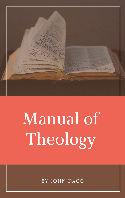Idx: Bible Versions and Translations
Translation – The Bible was originally given to man in Hebrew (the Old Testament) with a very few parts in Aramaic, and Greek (the New Testament). Any Bible manuscript (book) that is not in these languages is a translation. Within one single language, there many be various differentversions in that language, some emphasizing one particular principle of translation over another (one very literal even at the expense of not being so understandable or conversational, another very easily understood and conversational but not very literal and true to the original texts).
KJV Translators – Preface to 1611 version (a) 196K (14 pages)
I personally use and recommend the KJV Bible. But I am not a crazy about it, placing it as an authority above and beyond any criticism at all. It is a version, a translation, and no translation is entirely accurate to the original language it is translated from. Those who maintain that the Greek and Hebrew need to be corrected from the KJV are exalting a version above copies of Scriptures that are much more closer to the originals than ANY English version.
Having said that to clarify my position a bit, I would like to recommend Maxey’s site that evaluates various different versions of the English Bible [KJV,NIV, RSV, Living Bible, New World Translation (JWs), NASB, ASV]. I feel it is a little more realistic (i.e. read not knocking anything that is not KJV), and deals with valid considerations in each Bible evaluated.
Dozens of versions (in various languages)
http://bible-researcher.com/versions.html
NIV – New International Version
Cammenga – KJV vs. NIV – Which Bible?
Anderson, Allen – History and Comparison of English Bible Translations Currently in Print (2006)
Idx: Bible Versions and Translations






